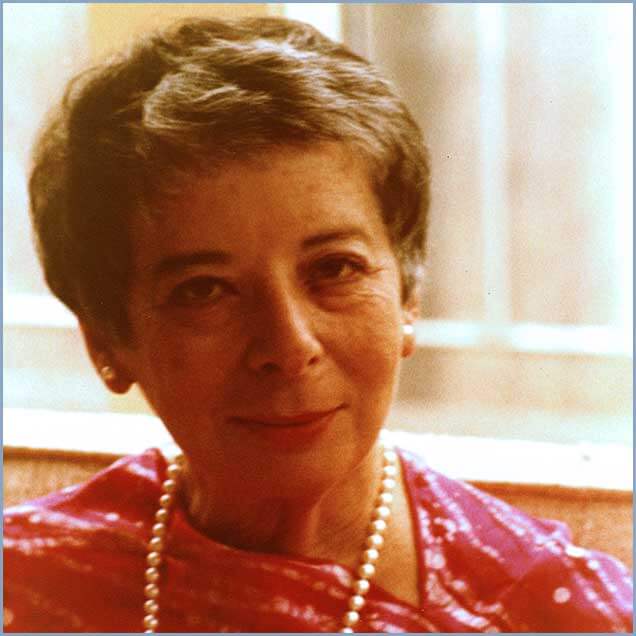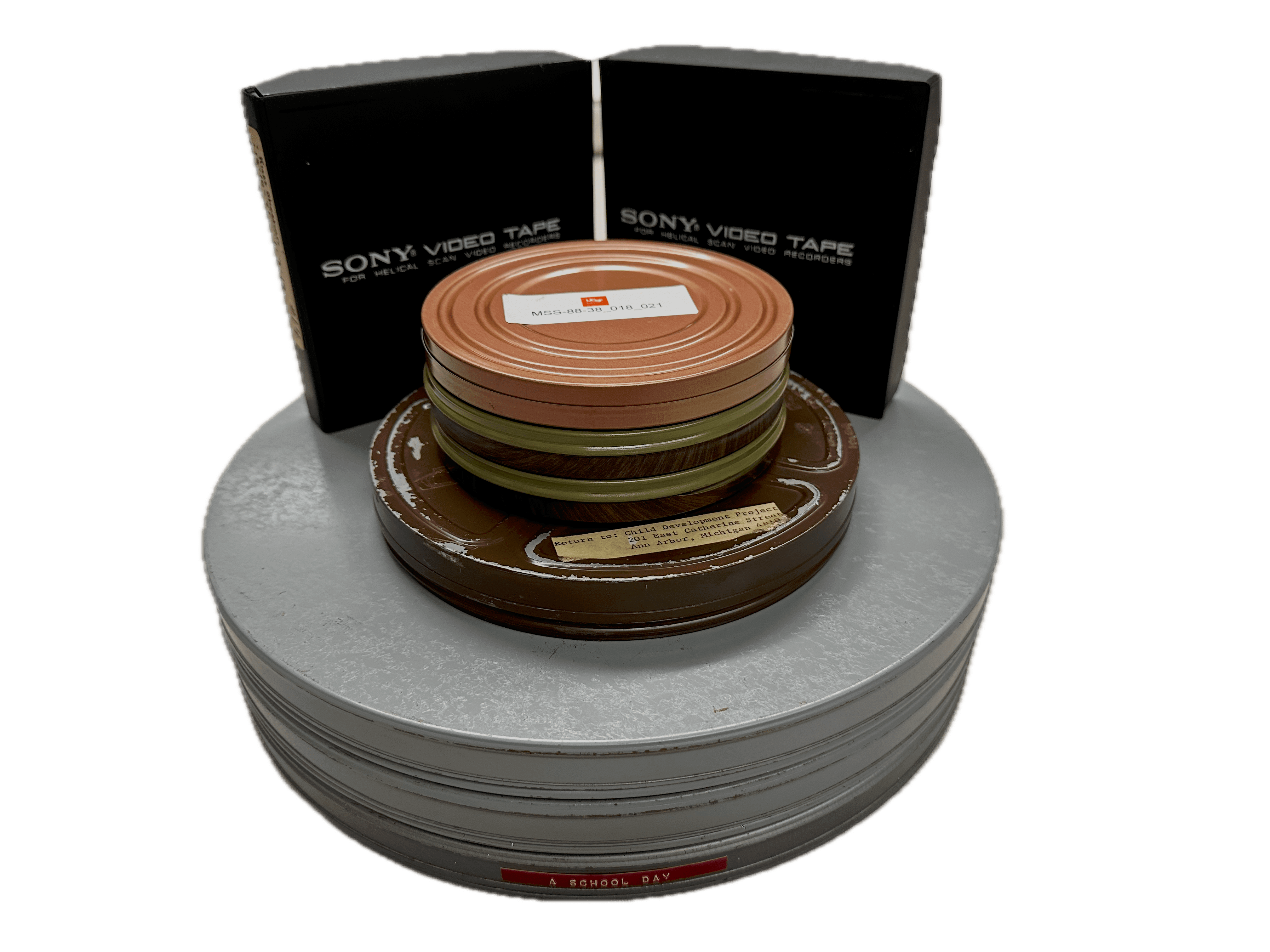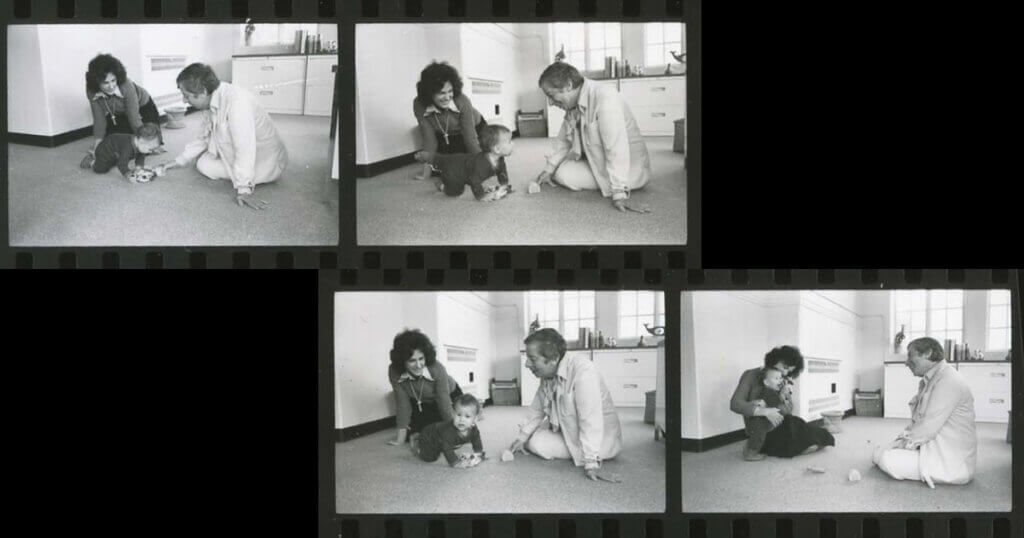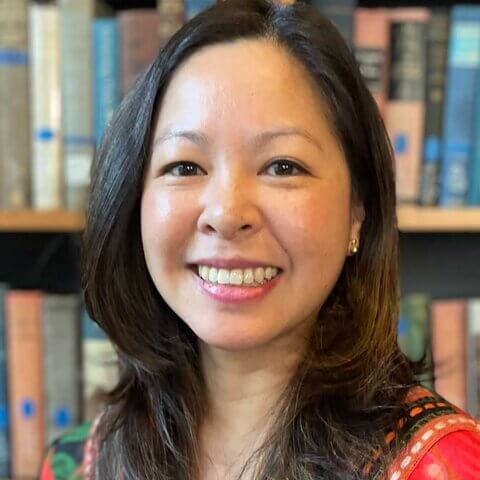The University of California, San Francisco (UCSF) Library Archives and Special Collections has completed a major project that ensures the preservation and accessibility of an influential film collection on child development. With support from the Council on Library and Information Resources (CLIR) through its Recordings at Risk program, UCSF successfully digitized 255 films and videos from the Selma Fraiberg Film Collection (1965–1980).

Selma Fraiberg, MSW (1918–1981), a pioneering social worker, child psychoanalyst, and former UCSF faculty member, utilized film to illuminate the emotional and social development of blind and sighted infants. For 15 years (1960s to 1970s), she brought a 16mm camera into the homes she was observing, which allowed her to document family life. The camera quietly recorded the ordinary moments between parents and their young children, capturing data points often missed through live observation. With her team from the Child Development Project at the University of Michigan, Fraiberg amassed hundreds of hours of footage that traced development across the first two years of a child’s life. The films follow blind infants as they learn to crawl, feed themselves, and interact with their environment through touch, sound, and movement. This remarkable body of work offered unprecedented insight into how blind children experience the world from their earliest days. These scenes would reshape our understanding of early human attachment and motor skills development, revealing how blind infants communicate, explore, and form relationships in the absence of vision.
Over the past year, UCSF archivists worked closely with a film digitization vendor to stabilize and digitize the fragile 16mm and analog videotapes. The project not only saved more than 86 hours of original footage, film stretching nearly nine miles in length, from deterioration but also developed new workflows for legally, ethically, and technically managing sensitive human-subject archival collections.

This project strengthens UCSF’s role in preserving rare and unique materials to support the research and teaching of the health sciences and medical humanities and ensures Fraiberg’s legacy will continue to inform generations to come.
Explore and connect
To safeguard the privacy of the research participants, access to most Fraiberg films is restricted and available only by approval. However, several titles, created with federal support from agencies such as the National Institutes of Health, the U.S. Office of Education, the Department of Health, Education, and Welfare, or produced by the New York Jewish Guild for the Blind, have been deemed public domain and are now openly available on Calisphere:
- Diagnostic Studies of Emotionally Disturbed Blind and Visually Impaired Children; Co-Twin Study: A Day in the Life of a Blind Child and Her Sighted Twin Sister (1964)
- Developmental Evaluation in Infancy (1965)
- Diagnostic Studies of Blind and Visually Handicapped Children: A School Day (1968)
- The Development of Attachment Behavior in a Blind Infant (1971)
- Blindness and Infancy: The Promise of Learning and Growth (1971)
- Care Through Parents: Creating Space in Pediatrics (1973)
To learn more about the collection or request research access, please contact UCSF Archives and Special Collections.
Acknowledgements
This project was made possible through the support and collaboration of several cross-campus partners, including the UCSF Library, the Executive Vice Chancellor and Provost Office (EVCPO) Finance team, the Office of Sponsored Research, IT Enterprise Information and Analytics Data Compliance, Logistics, and the Office of Healthcare Compliance and Privacy.
The Selma Fraiberg film digitization project was supported by a Recordings at Risk grant from the Council on Library and Information Resources (CLIR). The grant program is made possible by funding from the Mellon Foundation.

